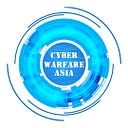Saudi activist Loujain al-Hathloul sues former U.S. intelligence contractors for spying
On Thursday, the Electronic Frontier Foundation filed the lawsuit on behalf of Loujain al-Hathloul’s against three former U.S. intelligence contractors working for DarkMatter, a UAE cybersecurity company. She has charged Dark Matter for illegally hacking her iPhone to track her communications and whereabouts.
This is not the first time such a secret surveillance has come into picture regarding Middle Eastern countries. Earlier, they have come in limelight for posing such attacks on their regional rivals. However, now they seem to be extending support to foreign nations to achieve their regional objectives as well by associating and acquiring tech firms.
Earlier, Gericke, along with two ex-US intelligence operatives Marc Baier and Ryan Adams, was reported to be a part of Project Raven, a covert team tasked with building the UAE’s Karma hacking system and later moved to DarkMatter. Now, their names have surfaced again in Loujain al-Hathloul case as well.
The disturbing background between UAE and Loujain al-Hathloul seems to be a clear motivation behind this attack. In 2018, Loujain al-Hathloul was detained by the UAE’s security services and extradited to Saudi Arabia, where she was arrested and sentenced for five years and eight months in prison. During her interrogation in a “secret prison in Jeddah,” al-Hathloul was “subjected to electric shocks, flogging, and threats to rape, sexually assault, and kill her.”
Baier, Adams and Gericke were “hackers-for-hire” who provided Dark Matter with “zero-click” computer hacking services that could compromise a device without any action by the target.
The trio admitted in September by providing sophisticated computer hacking technology to the UAE and entered into a deferred prosecution agreement that allows them to avoid prison sentences in exchange for paying $1,685,000 to resolve a Department of Justice investigation regarding violations of US export control, computer fraud, and access device fraud laws.
Apart from this case, Iran, UAE, Saudi Arabia and Qatar have comes numerous times in news for launching cyber attacks on each other.
For instance, earlier in February, New York Times revealed that UAE established an electronic spy network which included former US National Security Agency (NSA) members to spy on Qatar.
UAE spies hacked devices belonging to Qatar’s royal family and intercepted private communications between then-U.S First Lady Michelle Obama and Her Highness Sheikha Moza bint Nasser.
To retaliate back, Qatar took help from Global Risk Advisors (GRA), a US-based consulting firm, to extract information out of Broidy’s personal emails and spy for FIFA World Cup 2022.
Qatar also signed an agreement with Plantir technologies, a U.S-based software company, for handling their big data analytics. Bilateral agreement signed between Qatar and Turkey which prove that Turkey is the best possible ally for Qatar to boost its cyber capabilities for retaliation.
The Loujain al-Hathloul case suggests that the fight among Middle Eastern rivals is now found to be spilling beyond boundaries which were earlier limited to their mainland.
